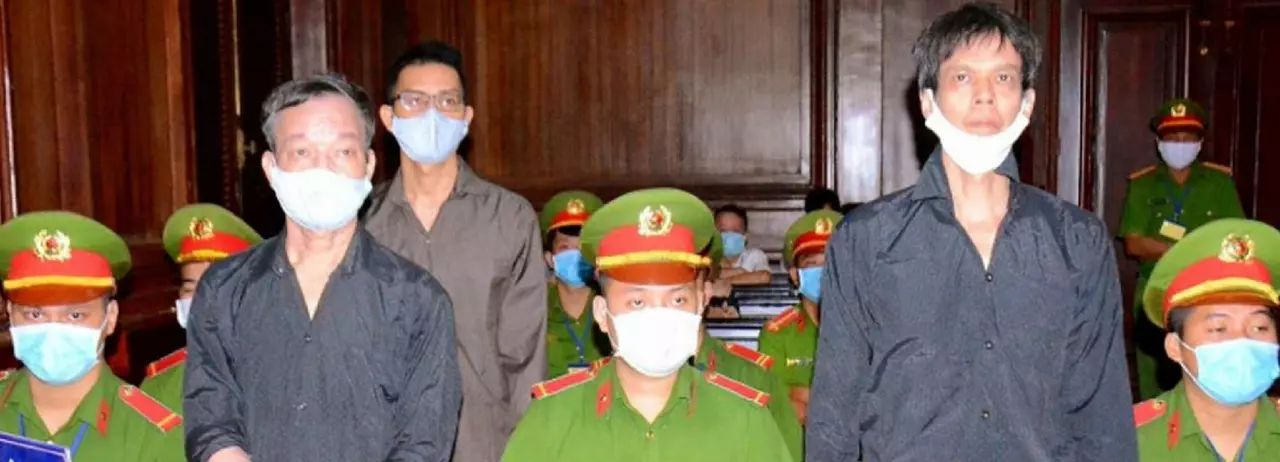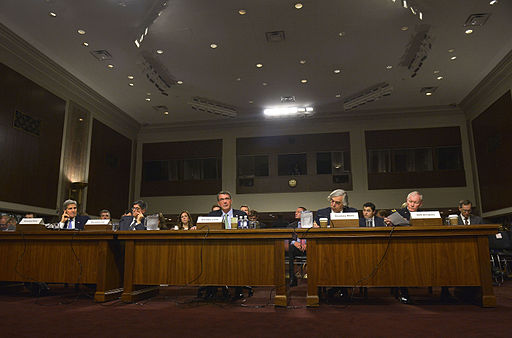Largest association of psychologists passes measure prohibiting members from participating in interrogations done in name of national security
Written by Nadia Prupis, staff writer for Common Dreams. Published 8-8-15.

The American Psychological Association’s in-depth role in U.S. torture of detainees was revealed in a landmark report released earlier this year. (Photo: Justin Norman/flickr/cc)
The American Psychological Association (APA) on Friday voted overwhelmingly to bar its members from participating in the interrogation of U.S. prisoners on foreign soil, officially ending the association’s complicity in torture of detainees and taking the first step out of “the dark side.”
All but one member of the APA’s 173-person Council of Representatives voted to end the association’s collusion with the CIA and other U.S. intelligence agencies in abusive interrogations as well as the so-called “noncoercive” kind now being carried out by the Obama administration.
Guantánamo Bay and Abu Ghraib military psychologist Col. Larry James cast the sole dissenting vote. There were also seven abstentions and one recusal.
The debate among members at their annual meeting in Toronto was reportedly emotional as they rehashed the bombshell internal investigation, published earlier this year, which exposed the APA’s participation in the CIA’s brutal methods of imprisonment and questioning. The Hoffman Report led to the swift resignations of several top APA officials, including its CEO, who stepped down in July.
Reports on the vote began circulating last week. An APA statement on July 29 recommended that its members adopt a policy prohibiting “psychologist participation in interrogation of persons held in custody by military/intelligence authorities.”
The vote was met with a standing ovation. The ban states that psychologists “shall not conduct, supervise, be in the presence of, or otherwise assist any national security interrogations for any military or intelligence entities, including private contractors working on their behalf, nor advise on conditions of confinement insofar as these might facilitate such an interrogation.”
“This is an extraordinary victory because these prohibitions are clear, they’re implementable, and people will be held accountable,” council member Steven Reisner told the Guardian on Friday. The APA will go “from leading us into the dark side to leading us out of the dark side.”
Nadine Kaslow, an APA member and head of the investigation committee, told the New York Times that the vote was “a very resounding yes.” Susan McDaniel, the association’s president-elect, added that it was “a tremendous step in the right direction.”
Reisner also noted that the vote only prohibits psychologists from colluding in interrogations conducted in the name of national security, ignoring “domestic cruelty” carried out within the U.S. justice system. But he said he hoped the APA’s decision could influence the treatment of American prisoners as well. “We have to consider that in the future,” he said.
While reformers welcomed the vote, they steadfastly maintained that it was only one crucial element in fixing the APA’s broken “moral compass.” That includes not just its actions in aiding torture, but also its suppression of would-be whistleblowers and others who objected to the association’s role in the program.
APA council member Stephen Soldz, who has helped lead the charge for reform at the association, stated on Friday that there is “something profoundly wrong with the way the organization functions…. No one in leadership ever spoke up against it. Not one board member or anyone in leadership over the past 10 years said, ‘This is not right.'”
Acknowledging as such in an APA statement, McDaniel added, “We have much work ahead as we change the culture of APA to be more transparent and much more focused on human rights. In addition, we will institute clearer conflict-of-interest policies going forward, all of which are aimed at ensuring that APA regains the trust of its members and the public.”
This work is licensed under a Creative Commons Attribution-Share Alike 3.0 License.




